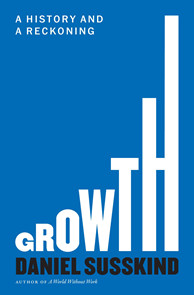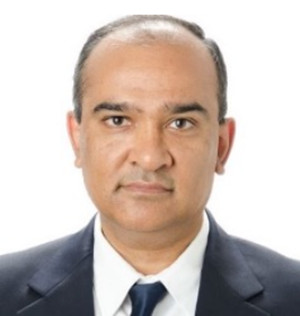 Growth
Growth
A History and a Reckoning
Daniel Susskind
Belknap Press
Cambridge, MA,
2024, 304 pp., $29.95
Daniel Susskind’s new book is an effort to persuade a general audience that economic policy should broaden its focus from aiming primarily to boost GDP growth to considering the costs of such growth as well.
Susskind, of King’s College London and Oxford, notes that economic growth has brought unprecedented gains in human prosperity and well-being across the world for over two centuries now. Governments place a high priority on GDP growth, regarding it as a summary indicator of economic strength associated with higher wealth, lower poverty, better health, and other benefits.
More recently, the urgency of climate change, inequality, and social fragmentation has led to concerns about the price of growth. The side effects of fossil fuels, which provide much of the energy for rising production, are clear. In many countries, higher inequality and a hollowing out of communities have accompanied growth and led to social and political fractures.
Policymakers must now confront the question of how to manage economies in a way that harnesses the benefits of growth while reducing the costs. Susskind’s book is part of a growing body of literature that calls for economic policy to broaden its focus beyond income to considerations of social well-being that are wider and that also take the future into account.
Some people would ignore the trade-offs between growth and its undesirable side effects—denying that they exist and continuing with business as usual or, at the other extreme, reversing course on growth—but a more relevant discussion is how to manage the trade-offs. “It falls to us to confront the tradeoffs presented by growth’s promise and its price,” Susskind writes, by ameliorating them where possible but, where that is not possible, accepting the need to choose between objectives.
For example, policies could seek to induce technological progress that is more environmentally friendly and provide incentives to foster growth that is less reliant on fossil fuels. Susskind suggests that taxes and subsidies, laws and regulations, and social narratives and norms are among the instruments that can be used. But, beyond a certain point, policymakers may simply need to accept that meeting climate and other social objectives could require slower growth. When it becomes necessary to choose among objectives, Susskind suggests leaving this choice “to the world of politics.”
Loading component...
Susskind casts his arguments in terms of things that “we” should do, which may assume a common set of interests. A practical difficulty for these proposals is that people’s preferences about the right balance between growth and other objectives differ sharply across and even within countries in both the developed and the developing world. A common view may be particularly hard to find in polarized environments, although a framework is not discussed for how policy should take account of these differences in determining the trade-offs among objectives. These may be subjects for future work.
Some of the book’s content will not be new to economists, who generally are familiar with the notion of trade-offs between growth and other objectives. The IMF, for example, incorporated climate change into its work relatively recently, but it has long recognized that the quality of growth is important. In 1994, then-Managing Director Michel Camdessus urged a need for “high-quality growth that . . . is sustainable, reduces poverty and distributional inequality, respects human freedom and national cultures, and protects the environment.”
Susskind’s synthesis of these issues is a useful addition to the public discussion of growth in a longer-term context. As he says, “We must treasure the future as much as [we] revere the past.”
Opinions expressed in articles and other materials are those of the authors; they do not necessarily reflect IMF policy.







